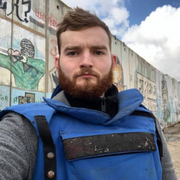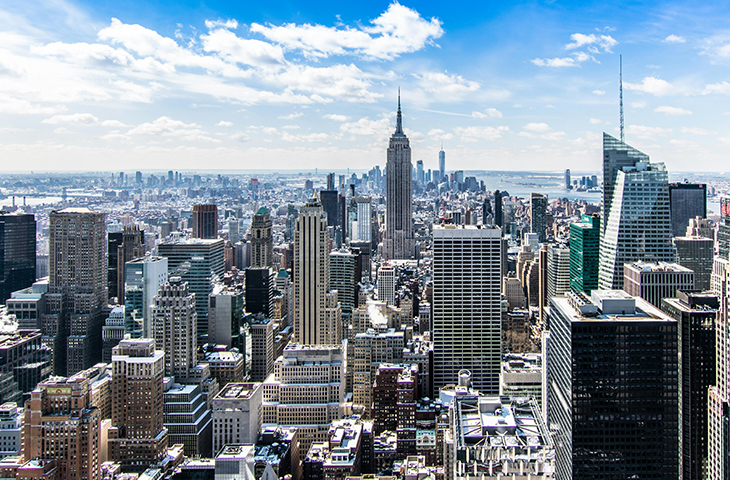Jordan’s Muslim Brotherhood Ban: Why It Has Everything To Do With Israel

Jordan’s renewed crackdown on the Muslim Brotherhood reflects growing regime insecurity and its deepening collaboration with Israel amid rising pro-Palestine sentiment at home.
On Wednesday, Jordanian Interior Minister Mazin al-Faraya announced that the Hashemite Kingdom is placing a ban on the Muslim Brotherhood. While the move comes in what Amman has framed as a reaction to destabilizing activities of the group’s members, it appears more like a crackdown on dissidents.
Although Jordan had originally banned the Muslim Brotherhood from operating inside the country over a decade ago, the new declaration was aimed at shutting down all activities connected to a licensed splinter group that was quickly surrounded by police officers upon the new ruling.
While it is clear that Amman is serious about seeking to purge not only Muslim Brotherhood-connected groups from within its borders but also decreasing the influence of its ideology, it is unclear how far the ban is intended to go.
For instance, the fate of the most popular political bloc in parliament is the Islamic Action Front (IAC), which is known for its affiliation with the Muslim Brotherhood and has desperately sought to distance itself from the organization, fearing a crackdown.
Jordan, as a Constitutional Monarchy, maintains a bicameral legislature. This means that its parliamentary system is essentially split into two, the lower chamber (House of Parliament) and the Senate.
While the lower chamber consists of 138 elected officials, who are voted in by the public once every four years, the Senate is composed of 69 members who are all chosen by King Abdullah II. The nation’s Grand Mufti and its Supreme Court Judge are also chosen by the Hashemite ruler.
In Jordan, the parliament also has no say on who will become the prime minister or one of its Ministers, as these roles are subject to appointment by the King alone. Why this matters is that the only place where the democratic will of the Jordanian public is heard is in the parliament’s lower chamber.
Back in September, an election took place, and the Islamic Action Front won in a landslide.
Since that time, the Jordanian leadership has launched a series of crackdowns targeting individuals and events linked to the Islamic Action Front and Muslim Brotherhood.
In addition to this, the Hashemite Kingdom has cracked down upon several prominent pro-Palestine protest organisers in the country.
The Muslim Brotherhood’s stances towards Palestine and the war on Gaza have greatly contributed to a rise in their popularity.
However, another important indicator emerged from the last election and that was the large bloc that cast their ballot without choosing any party. This crowd was interpreted as a protest vote group, yet there is no political entity representing them and thus nobody specifically to be persecuted.
US Vs. Ansarallah: Will Trump Launch A Ground War in Yemen for Israel?
Jordan is currently experiencing a range of issues, including everything from increasing economic instability to political unrest over the leadership’s collaboration with Israel, even allowing the free flow of supplies to aid the Israelis in committing their genocide in Gaza. The largest portion of Jordan’s citizenry are actually Palestinian, which compounds these issues further.
In addition to all of this, there is now even greater instability on its northern border with Syria, following the fall of Syrian President Bashar al-Assad, leading to fears of all kinds of hostilities erupting as a result.
Last week, the Jordanian authorities announced that they had arrested a cell consisting of 16 fighters, accusing them of attempting to damage national security. A number of claims were made about the weapons and capabilities that the groups were said to have possessed, including rockets with a 5 KM range and a facility for developing drones.
The Jordanian authorities claimed the group to have been affiliated with the Muslim Brotherhood and to have taken orders from a cadre leader operating out of Beirut, Lebanon. Later, reports began to emerge that suggested the rockets had a range of 12 KM and that the group was affiliated with Hamas. Either way, the whole incident has been covered vaguely, and little can be concluded from what was publicly shared.
What is for certain, however, is that the armed cell issue has been weaponized in order to excuse the larger Muslim Brotherhood crackdown. Then came claims that other cells were also arrested. In all, it is clear that the excuses issued for this purge of the Muslim Brotherhood and their affiliates, including a ban on disseminating or discussing them in any positive way on the media, are not genuine.
Jordan understands well that its population is fed up with their declining living standards, false promises about political reforms, all while there is continued collaboration with Israel. The Jordanian leadership clearly fears a popular uprising, but also any resistance groups emerging that will challenge Israel from within its territory.
Working together with the unelected Palestinian Authority President, Mahmoud Abbas, the King of Jordan is committed to crushing any rebellion against Israel’s genocide in the Gaza Strip.
How Netanyahu’s Fight against His Own Intel Chief Impacts Gaza
This is why the Jordanian ruler opposes Israeli annexation of the occupied West Bank so furiously, as he understands that, given the collapse of the EU-US-Israeli collaborationist regime in Ramallah, which represents no more than a corrupt class of business elites, his own position on Palestine collapses.
Khaled Barakat, a leader of the Palestinian Alternative Revolutionary Path (PARP) movement, recently stated the following in a comment piece for al-Akhbar News:
“The regime—like the authority in Ramallah—sees neither Jerusalem nor the daily massacres in Gaza as issues worthy of severing relations with the Zionist entity. It refuses to bear its historical and political responsibility for the loss of Jerusalem and the homeland in 1948 and 1967.”
He continued:
“At the same time, its security apparatus confiscates the citizens’ right to fight for Jerusalem, their own rights to freedom and to stand with Gaza, and their right to cry out against the actions of Ben Gvir and his herd of vicious settlers. It denies them the right to reject daily slaughter and the crimes of the enemy in Jerusalem: Judaization, displacement, house demolitions, and daily desecration of Al-Aqsa Mosque and Muslim and Christian holy sites.”
The anti-Israel sentiment inside Jordan is overwhelming, which has led to a number of Jordanians taking matters into their own hands and launching individual armed attacks against Israeli forces on the opposite side of the border. Meanwhile, Jordan has continued to send supplies through its territory to Israel, while publicly using the language of human rights and expressing its concern over the massacres in Gaza.
At the same time, Amman frequently cracks down on pro-Palestinian voices and would-be armed cells that seek to confront Israel, under the guise of national security, stability, and using excuses about “Iran-backed” conspiracies.
These conspiracy theories about Iranian, Hezbollah or Ansarallah plots are the same arguments used by every pro-Israel and pro-US leadership and group in the region. Such accusations rarely produce any demonstrable proof that such conspiracies exist, yet they are widespread.
The anti-Iran rhetoric often works due to its sectarian elements, even convincing some portions of the wider Arab World that they should ally themselves with Israel and the United States in order to fight “the Shia”. Yet, the absence of any considerable Muslim minority groups in Jordan makes the sectarian propaganda less effective and thus a different boogeyman must be conjured up.
Despite all of this, the Hashemite rulers’ crackdown on the Muslim Brotherhood is a tell-tale sign of fear in the direction the government is heading. Historically, confident leaders don’t feel the need to initiate political crackdowns, liquidate political parties and curtail free speech, unless they sense a threat to the status quo.
(The Palestine Chronicle)
– Robert Inlakesh is a journalist, writer, and documentary filmmaker. He focuses on the Middle East, specializing in Palestine. He contributed this article to The Palestine Chronicle.
The post Jordan’s Muslim Brotherhood Ban: Why It Has Everything to Do with Israel appeared first on Palestine Chronicle.


